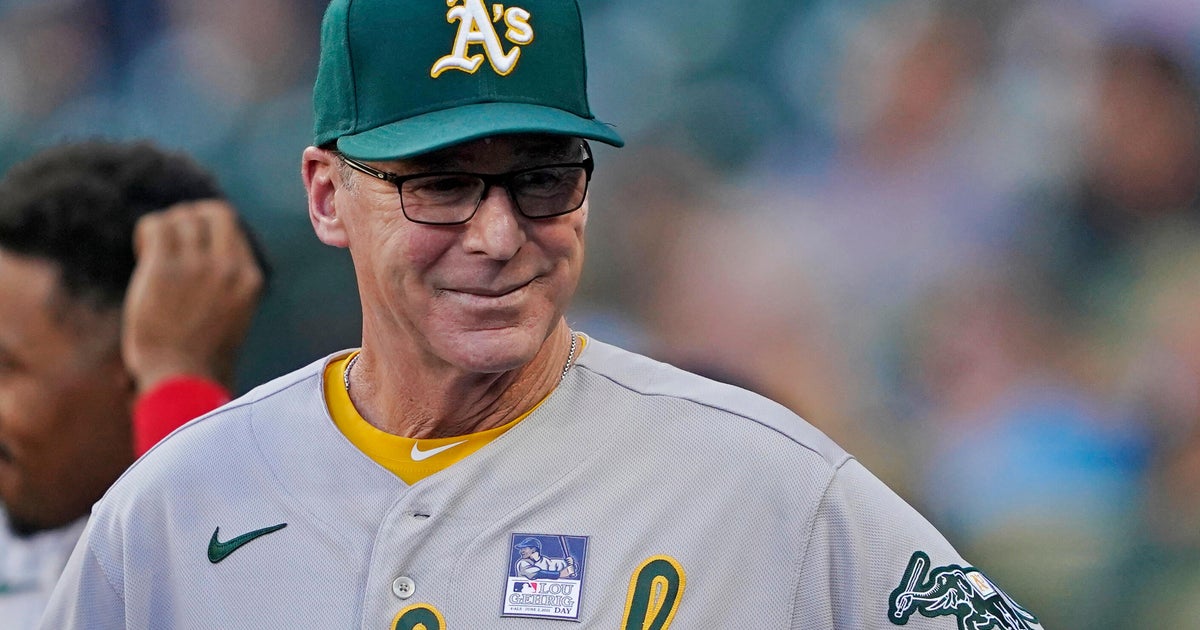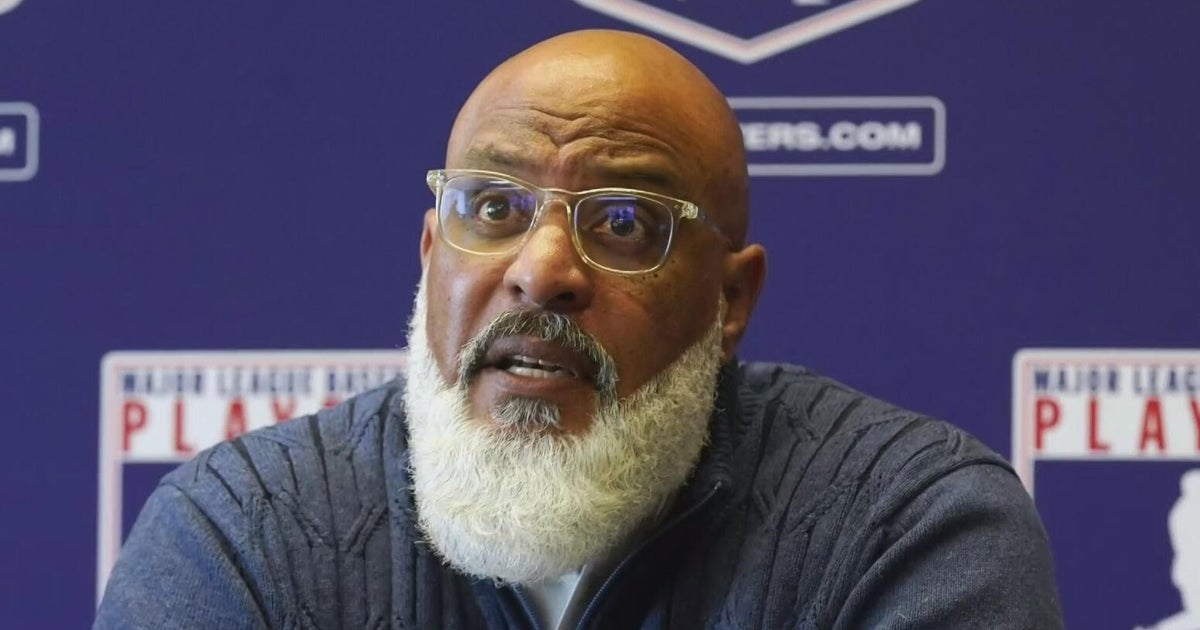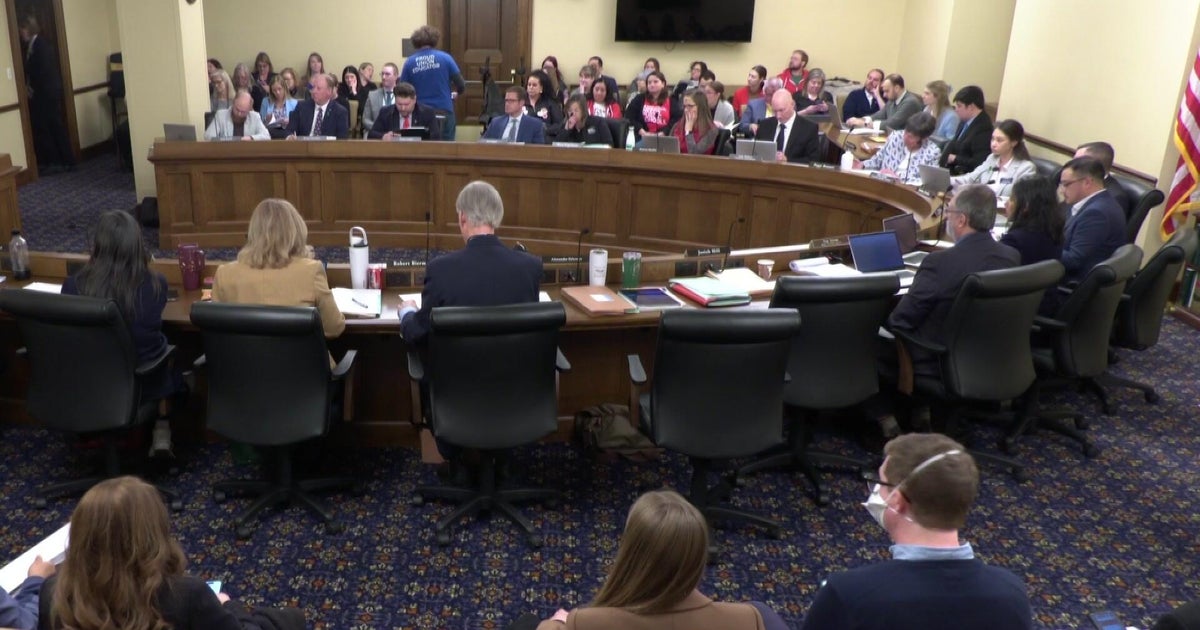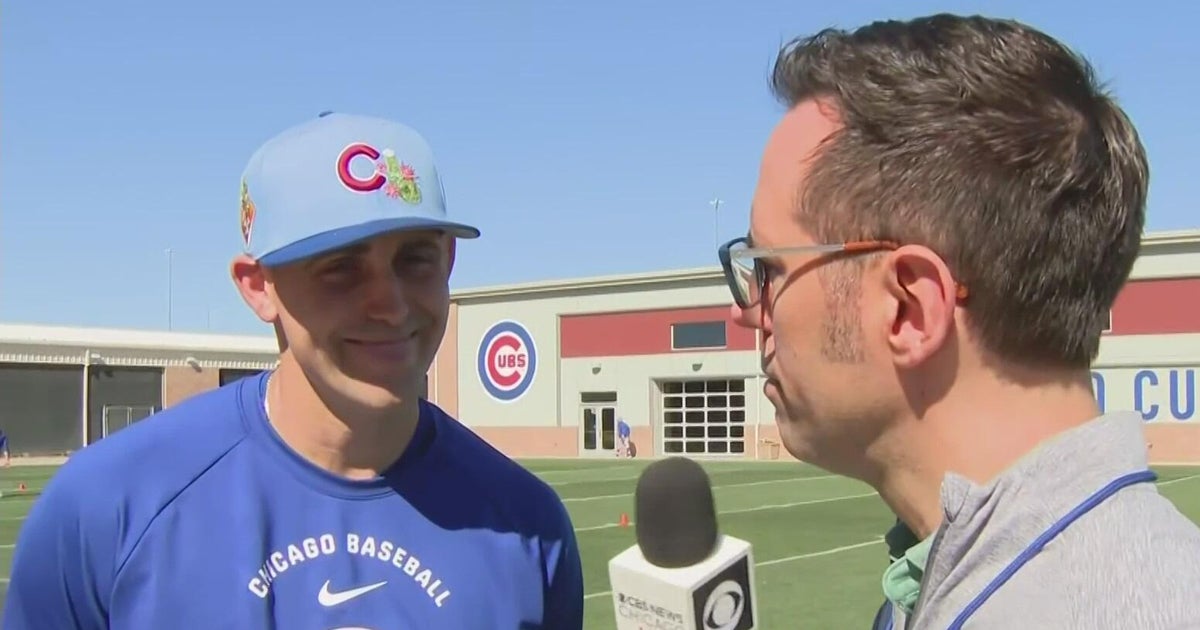Hurley: Yankees Are Getting Hosed By MLB's Manufactured Drama Of One-Game Wild Card
By Michael Hurley, CBS Boston
BOSTON (CBS) -- Ever since Major League Baseball made a change to its postseason format that absolutely nobody was calling for, I've been shouting into an echo chamber until my face turns red. My main message has been simple: This one-game wild-card playoff system stinks.
It stinks out loud.
For whatever reason, I've yet to convince the world of this fact. Yes, the games are dramatic, and yes, we'll all watch because how could you not watch? But the entire idea of throwing a 162-game season out the window for a three-hour television exhibition is patently unfair.
In the past, whenever I've made the argument here on the internet, my opposition has always come back with some sort of convoluted case that I'm just being a Boston homer and that I'm only writing about the topic because the Red Sox were somehow aggrieved ... even when the Red Sox had nothing to do with any of it.
Despite that counterargument being the mark of a fool, I do think I'm safe in writing from Boston this year in support of the New York Yankees. Right? Right. So let's proceed.
There are two major issues with the one-game playoff system:
1. All three division winners are gifted a free pass to the division series, even if that division winner is worse than a wild-card team.
2. One wild-card team might have spent the past 162 games firmly establishing itself as a better ballclub than the other wild-card team.
This year, Beef No. 1 doesn't apply in the AL; all three division winners earned their way to the ALDS. But Beef No. 2 certainly comes into play with the Yankees.
Playing in the AL East, the Yankees won 91 games -- 20 games over .500.
Playing in the inferior AL Central, the Twins won 85 games -- eight games over .500.
Earning those 91 wins was made much more difficult for the Yankees, who played 76 games against the AL East. And the combined record of the other four AL East teams was 324-324. The Yankees went 44-32 in those games.
For the Twins, earning 85 wins was easier, who played 76 games against AL Central opponents. The combined record of the other four AL Central teams was 398-412.
The two teams' record against each other's divisions holds true, too. The Yankees went 18-15 against the AL Central, while the Twins went 15-18 against the AL East.
The Yankees also handled their own against the better teams in baseball. Against the 2017 postseason field, the Yankees went 22-20. The Twins went an abysmal 16-31.
You can go head-to-head, too, if you'd like: The Yankees went 4-2 against the Twins this year.
The Yankees also had a plus-198 run differential, compared to the Twins' plus-27 mark.
Really, there's not any reason that the Twins should be in the same position as the Yankees right now. Placing the game in the Bronx does not at all tilt the scales enough to account for the discrepancy.
The uncultured, unsophisticated response to this issue would be to say, "Well, Michael, if the Yankees are so much better than the Twins, then they should have no problem winning on Monday night and advancing to the ALDS."
To you, I say this: Nay. Nay, sir or madam. Nay. Baseball doesn't quite work that way.
As everyone who watches baseball knows, the better team does not win every single night. That's not how the sport works. Last year's World Series-champion Cubs still lost four games to the Reds, who owned the worst record in MLB. The Cubs lost nine out of 36 games against the four worst teams in the NL. The 2015 World Series-champion Royals went just 10-9 against the Tigers, who owned the second-worst record in the American League.
Whether it's due to a great performance by a starting pitcher or a bad call or series of calls by an umpire or the glare of the sun interfering with fielders' vision or a baseball taking a sideways bounce off a base, bad teams beat good teams every night in baseball. That's why regular-season series are typically three games, and that's why a 162-game season is used to determine standings. It's enough time for the discrepancies to be leveled.
There's also this: In baseball, a one-game playoff is a 0.62 percent representation of the regular season. No other sport has anything like this. In the NFL, a one-game playoff is a 6.25 percent representation of the season. In the NBA and NHL, the first round of the playoffs is between four and seven games, which is between a 4.88 percent and 8.54 percent representative of the regular season.
But baseball decided that for one unlucky team, a 0.62 percent representative of the regular season is enough to potentially end a whole season.
I've done this before but I'll do it again: That'd be like the NFL having two wild-card teams play a six-minute football game to determine who moves on to the next week and who goes home for the winter. It'd be like the NHL's first round of the postseason consisting of one game made up of three 10-minute periods. It'd be like the NBA holding a single 24-minute playoff game, the loser of which has its season ended.
Those other leagues would never agree to such nonsense. Yet Bud Selig decided five years ago that MLB should do it every year.
Oh, and I might as well address the other two unenlightened replies that inevitably come in this discussion. First: "JUST WIN YOUR DIVISION!" Stop that. The wild-card system was put into place in 1994 to account for teams that proved worthy of making the postseason despite not winning the division. With few exceptions, it's worked out well. And just because the Yankees finished two games behind the Red Sox does not mean they should have to put their whole season on the line against the inferior Twins -- especially if the main reason for this game is to give MLB a boost in TV ratings.
The other inevitable reply is that one-game playoffs have existed forever. But that's incorrect. When two teams have tied for a postseason spot in the past, they have faced each other in a one-game playoff, yes. But that was Game No. 163, not Postseason Game No. 1. There's a significant difference. In the former scenario, 162 games proved to be not enough time to determine a superior team, so one more game would have to be added. That's great. That's dramatic. That's what sports is all about.
In the latter scenario, a commissioner decided in one of his final years on the job that he'd create a TV spectacle, not wholly unlike professional wrestling, in which the regular-season results were wiped away so that a team that proved itself to not be worthy of a postseason spot gets a chance to worm their way in to a playoff series. What a world.
And all of this has yet to address the major hurdles created for a team that shouldn't be playing in this game to begin with. Even if the Yankees beat the Twins, as they reasonably should, they'll have used their ace on a Monday night, just three days before Game 1 of the ALDS, thus putting them at a significant disadvantage in the first round.
I'll grant you that when a team like the Indians dominates the AL and earns a No. 1 seed, it is sensible that they reap some benefit like this one. But the Yankees didn't really do anything to deserve being handed such a distinct disadvantage. The balance is off.
The bottom line, if you haven't yet gotten it, is this: Based on their bodies of work over the past six months, the New York Yankees deserve a spot in the postseason and the Minnesota Twins do not. Yet just nine innings of baseball might determine otherwise.
Some years, the problem is more prevalent than others. Last year, for example, provided no gripes, as none of the four wild-card teams had a great claim to being better than the other wild-card teams, and the division winners were all legitimate. In 2015, it was a joke that the 98-win Pirates had to play in a one-game playoff, while the 90-win Mets were able to watch on TV while waiting for their NLDS to begin. The first year of the system -- 2012 -- might have been the worst, when the 88-win Tigers "earned" a trip to the ALDS while the 93-win Orioles and 93-win Rangers had to square off in a nine-inning game to end one team's season.
Throwing an entire season's worth of results into the trash, all for manufactured drama in early October? It's a problem with which seemingly not enough people in baseball have a problem.
That the situation garners sympathy for the Yankees from the city of Boston should speak to the level of inequity that Bud Selig instilled five years ago.
You can email Michael Hurley or find him on Twitter @michaelFhurley.







